ASU employees honored with President's Awards for social embeddedness, innovation
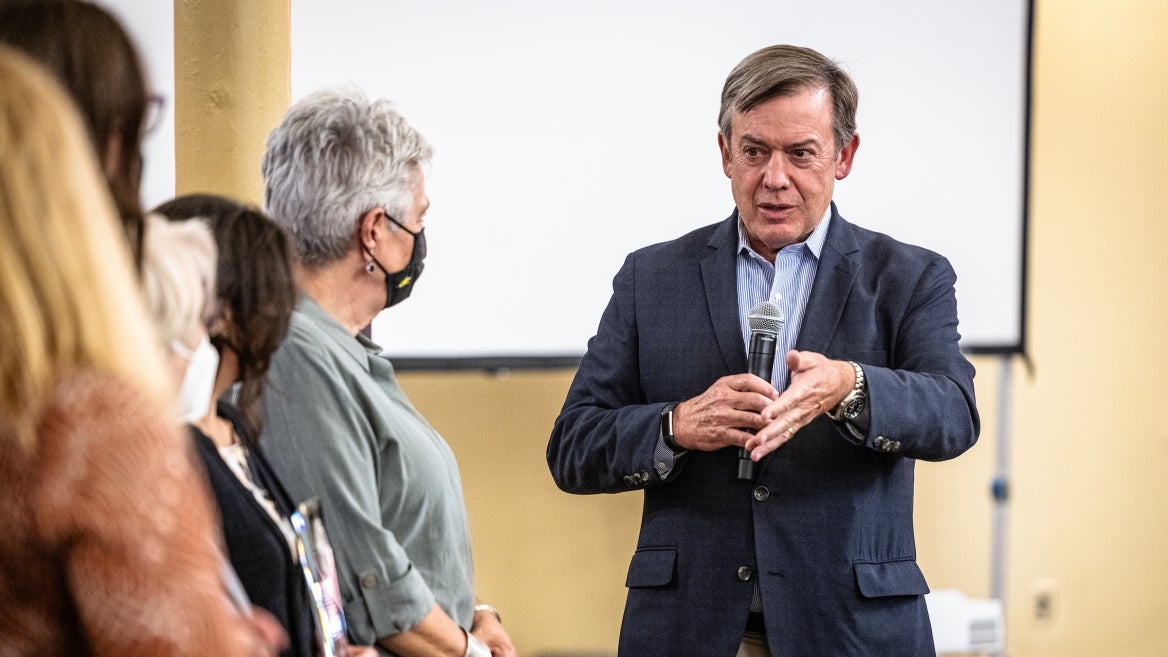
Arizona State University President Michael Crow honored staff and faculty members during the 2021 President’s Recognition Ceremony on Tuesday.
The annual event recognizes collaborative initiatives that have demonstrated excellence in advancing the university’s mission: the President's Award for Innovation, which went to two programs, and the President’s Medal for Social Embeddedness, which went to three programs this year.
Individual employees were also honored with Serving University Needs (SUN) Awards, which are decided by peers.
President’s Award for Innovation awardees
NatureMaker, a nature-based, applied-learning library created by the Biomimicry Center and the Library of ASU.
NatureMaker offers artifacts such as feathers, shells, skeletons, insects, dried plants and seeds, tools for visualizing natural phenomena — including microscopes, 3D scanners, binoculars, field kits and magnifying lenses — and books on topics such as biomechanics, natural history and up-close photography of objects drawn from nature. Crow said that libraries are vital to fighting the misinformation found on the internet.
“The fact that you’re able to take this and enhance our understanding of where we are in time and space is fantastic," he said. "What we need is curation and intellectual context, and that’s what you guys provide.”
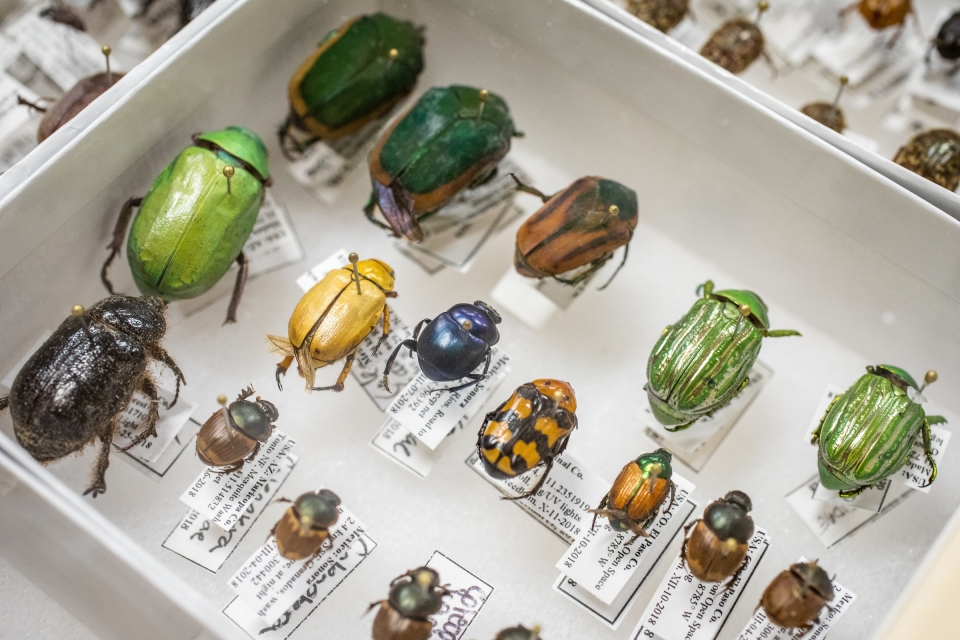
The bio-inspired NatureMaker space in the Biomimicry Center features scores of beetle samples. Photo by Charlie Leight/ASU News
Study Hall, a YouTube channel that reached more than 1 million learners during its first year with entertaining concepts that prepare learners for college success. Students can learn how to navigate college, explore majors and get an early start on foundational knowledge. The initiative is a collaboration among many units, including Crash Course, developed by EdPlus with Hank and John Green.
Crow said: "This project is exemplary of the way ASU is going. Whatever barriers there were in the past to accessing the institution – we are moving those barriers, and this is a fabulous, scalable innovation.”
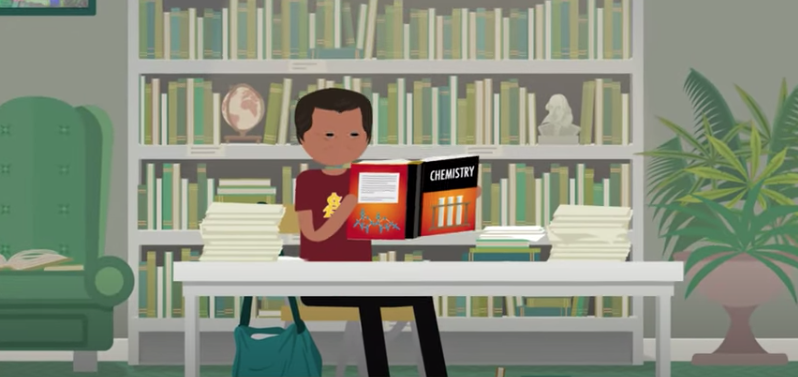
Screenshot from a Study Hall video on YouTube.
President’s Medal for Social Embeddedness awardees
The Guadalupe COVID-19 Community Response Team, which provides culturally tailored health education and prevention to mitigate the spread of COVID-19. The team spends one day a week on food distribution and two others helping coronavirus victims and reaching out to isolated individuals. Student volunteers assist with case investigations, contact tracing, delivering supplies and assessing needs.
The effort, which began after ASU researchers found high levels of the COVID-19 wastewater in the community, is a collaboration among ASU, the Maricopa County Department of Public Health, Native Health Inc., the Pascua Yaqui Tribe, the School of Human Evolution and Social Change at ASU, the Student Outbreak Response Team, the town of Guadalupe and Watts College of Public Service and Community Solutions. Crow praised the effort as an effective way of leveraging the university’s resources at the community level.
“It was extremely difficult for us to find communities that were willing to work in a way that took the things we could build and turn them into real tools,” he said. “Your work helps lay the foundation to help us figure out how to work and be engaged with other communities.”
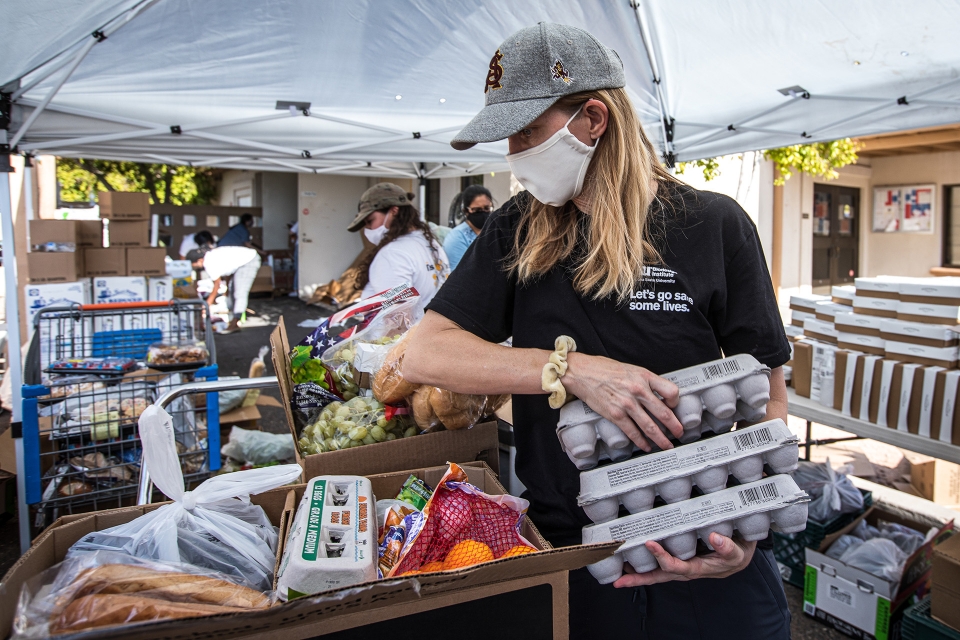
Associate Professor Megan Jehn helps distribute food at a community food drive in Guadalupe on Aug. 4, 2020. The weekly event is part of the Guadalupe COVID-19 Community Response Team's work supporting community health in the town. Photo by Charlie Leight/ASU News
School Participatory Budgeting, a civic learning program implemented in 47 Arizona K–12 schools. The program teaches democracy by empowering students to develop proposals and vote on a proposal to implement on their campus. The program was created by the ASU Participatory Governance Initiative, the Center for the Future of Arizona, the Mary Lou Fulton Teachers College, the Arizona Development Disabilities Planning Council and several school districts.
Crow said: “This project is fantastic because it’s worked at multiple schools and created this opportunity to teach civics by doing it and making decisions by participating in the process and deciding how real resources are allocated.”
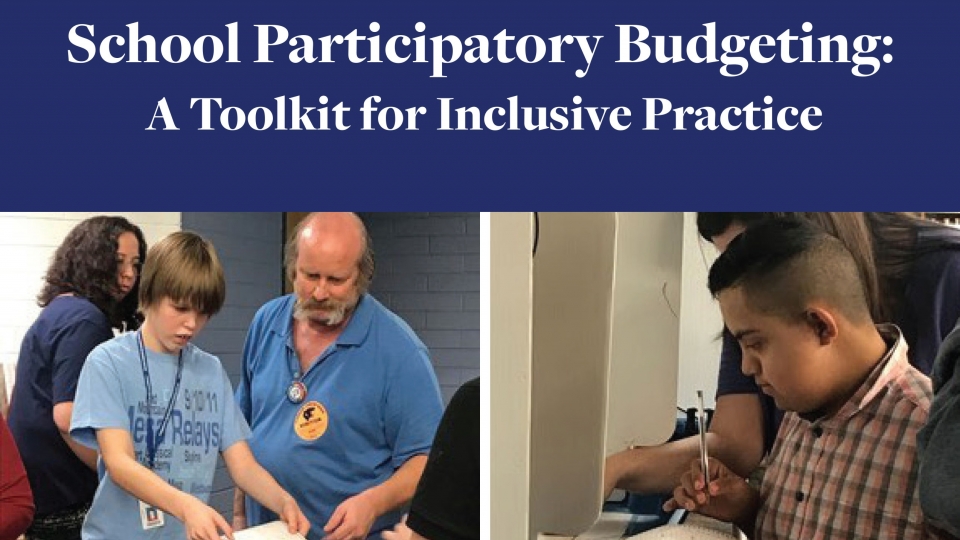
The toolkit has been implemented in 47 Arizona K–12 schools.
Thrive in the 05, an initiative to develop community solutions to solve complex social problems through partnerships and research in Tucson. The initiative is named after the 85705 ZIP code, a 2.5-square-mile area near the city’s urban core that includes Tucson House, a public housing high-rise, and Old Pascua, a community of the Pascua Yaqui tribe. Thrive in the 05 pivoted during the pandemic to offer a helpline, care boxes of household and personal supplies and wellness checks of vulnerable residents.
The program is a collaboration among ASU’s Office of Community Health, Engagement and Resiliency; Chicanos Por La Causa; the city of Tucson; the Pascua Yaqui Tribe; Pima Community College; Pima County Health Department; the School of Criminology and Criminal Justice at ASU and the Tucson House residence.
“You helped to build resilience capacity," Crow said. "You made it work during a very complex moment. This is not the last complex moment – this is the latest complex moment.”
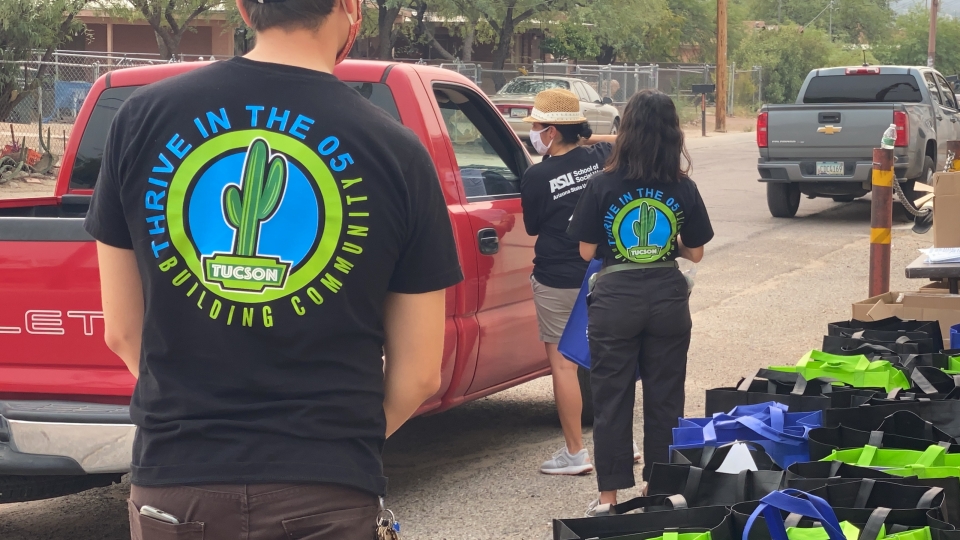
Volunteers for the School of Social Work's Thrive in the 05 initiative hand out care bags to Tucson residents. Photo courtesy of School of Social Work
SUN Award winners
Derek Keith, a senior coordinator with University Academic Success Programs at the Polytechnic campus, where he supervises tutors and staff in the writing center.
Crow said: “You have to master writing as your main form of expression to be a college graduate. Thank you for taking that on.”
Valerie Keim, a senior grant and contract officer in the Office of Research and Sponsored Projects Administration on the Tempe campus, who was honored for her diplomacy and resourcefulness when dealing with complicated contracts. Crow said her work in helping faculty to apply for proposals is vital, especially when there are missed deadlines.
“We ask our faculty to do so many things, and you put together a team to help them have an easy way to submit a proposal," Crow said "They’re putting their life’s work in that proposal.”
Maureen McCoy, a senior nutrition lecturer in the food and nutrition entrepreneurship degree program in the College of Health Solutions at the Downtown Phoenix campus, where she is the faculty adviser for the Pitchfork Pantry and researches food equity and insecurity.
Crow said the nutrition program “is one of the only ways we can get to equitable health outcomes.”
Jenna Graham, a senior management research analyst in the New College of Interdisciplinary Arts and Sciences on the West campus.
Crow said: “The New College is a tough assignment because it’s new and it’s different from the College of Liberal Arts and Sciences. Finding a way to communicate that and find and keep students and make that college thrive is a tough assignment.”

Bios of the SUN Award winners and a President's Award for Innovation are on display at the 2021 President’s Recognition Ceremony in the Carson Ballroom in Old Main on the Tempe campus on Oct. 26.
Top photo: ASU President Michael Crow addresses members of NatureMaker, one of the winners of the President's Medal for Innovation, at the 2021 President’s Recognition Ceremony on Oct. 26. Photo by Charlie Leight/ASU News